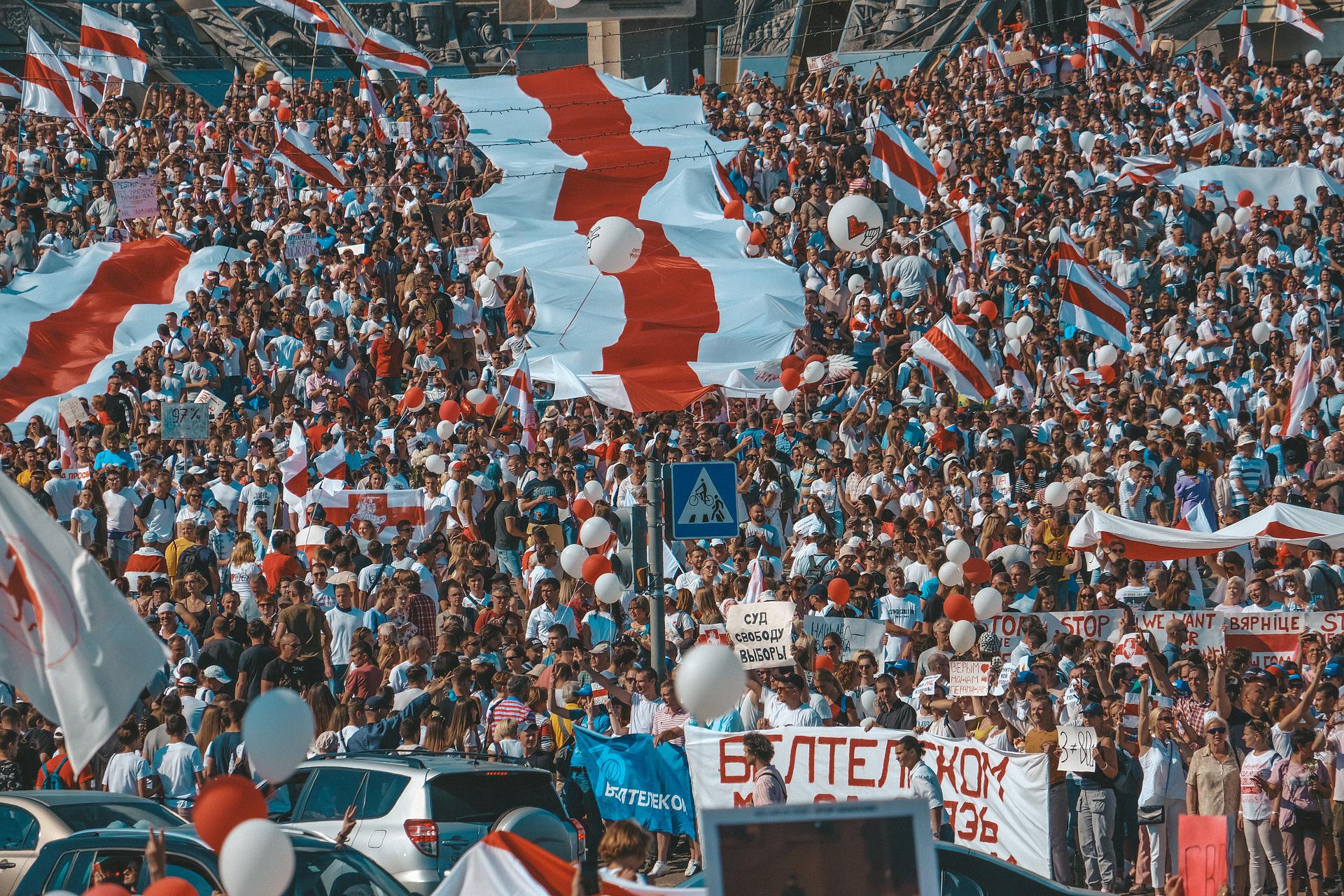The free press in Belarus is under threat like never before in the wake of the disputed re-election of Aleksandr Lukanshenka in August 2020, with journalists being threatened, fined, arrested and tortured for speaking out against the country’s ruler. Indeed, former Index employee and contributor Andrei Aliksandrau remains in prison, facing a sentence of up to 15 years for alleged “high treason”.
A year after the elections, the Belarusian authorities went a step further in clamping down on media freedom, banning the country’s journalism body, the Belarusian Association of Journalists.
Despite the challenges, the BAJ continues to receive support and, at the end of April, the organisation was awarded the 2022 UNESCO/Guillermo Cano World Press Freedom Prize.
Index spoke with BAJ chair Andrei Bastunets in the wake of the award, talking about the worsening situation for independent media and how BAJ continues to support press freedom.
Is it still possible to work as an independent journalist in Belarus following the start of the war in Ukraine?
“The key problems for Belarusian independent journalists arose before the war in Ukraine, and even before the 2020 presidential election. But after the elections – and journalists’ coverage of post-election protests – the pressure on the media, journalists and bloggers has increased dramatically (although earlier Belarus had bad ranking positions in international free speech ratings and indexes too). In 2021, many journalists and even entire editorial offices were forced to flee the country in order to avoid criminal prosecution by the Belarusian authorities and to be able to continue their professional activities.”
“A lot of Belarusian journalists – more than 100 – who were forced to leave their country chose Ukraine as a place of refuge. But after the start of the Kremlin’s war against this country, they had to leave their homes and belongings again and move to other countries. Journalists and bloggers who continue to work in Belarus face additional persecution for expressing their anti-war position. However they spread truthful information on what is happening. Last week, Baranavichy-based journalist Yury Hantsarevich was detained and accused of passing on information about Russian troop transfers in Belarus.”
How many journalists are still in detention in Belarus?

Andrei Bastunets, chairperson of the Belarusian Association of Journalists
“There are 24 journalists behind bars at the moment. Eight of them are serving their terms in prison, and the rest are in custody pending trial. All are deemed political prisoners by Belarusian human rights organisations.”
“In the first four months of 2022, five sentences were handed down against journalists in criminal cases – from 1.3 to 2.5 years in prison. The maximum punishment for a journalist has been a 15-year strict regime sentence for blogger Ihar Losik, who was a consultant for the Belarusian service of Radio Liberty.”
“My friend and former Index staff member Andrei Aliaksandrau has been in jail since January 2021; and recently the Belarusian Investigative Committee reported on the charges against him under four criminal articles, including Article 356 (high treason) which outlines a punishment of up to 15 years in prison.”
How is the war (or special military operation as Putin would have it) being reported in Belarus?
“There is a difference in the approaches of state-run and independent media outlets. In the news agenda of the independent media, the war in Ukraine is being called ‘war’ and it is on their front pages. These media outlets are publishing mostly online now because they do not have an opportunity to publish in print after printing houses and state monopoly distribution chains were banned from cooperation with the independent press. The state television and other government-backed media in Belarus are reporting on the war in Ukraine spreading the narratives of the Russian pro-Kremlin media.”
Is the BAJ still operating and is it having to do so from exile?
“In August 2021, the Supreme Court of Belarus ordered the dissolution of the organisation, at the request of the country’s Ministry of Justice. Now, BAJ is not an organisation registered by the Ministry, it is not a formal structure. It is about 1,300 people united in implementing their common idea and their mission – to expand the space of free speech in Belarus. And an official’s resolution has not affected our activities. Most of the organisation’s leadership had to leave the country after a series of police raids and interrogations by investigators, after arrests of our colleagues and friends, but we continue our work from abroad. We treat all media outlets of Belarus, regardless of whether they stayed in the country or moved abroad, as a single Belarus media sector. And we are providing all the necessary and possible support to this media sector.”
How important is the recognition through awards of BAJ, such as the Unesco award recently?
“We regard the UNESCO award as support for the entire independent journalistic community in Belarus. By the way, within literally two days, BAJ received three awards. In addition to UNESCO/Guillermo Cano World Press Freedom Prize, there was the award from the Swedish section of Reporters Without Borders (RSF) and Difference Day Honorary Title for Freedom of Expression from Brussels ULB and VUB universities. They are very important for our organisation as appreciation of our work, but even more as a high assessment of Belarusian journalists’ work in extremely difficult conditions. And, of course, it is important for us that Belarus has returned to the front pages of the international media. Although, we understand indeed that current events in Ukraine are attracting general attention as the state of affairs in the region and of the entire system of world security formed after WWII depend on their development.”





